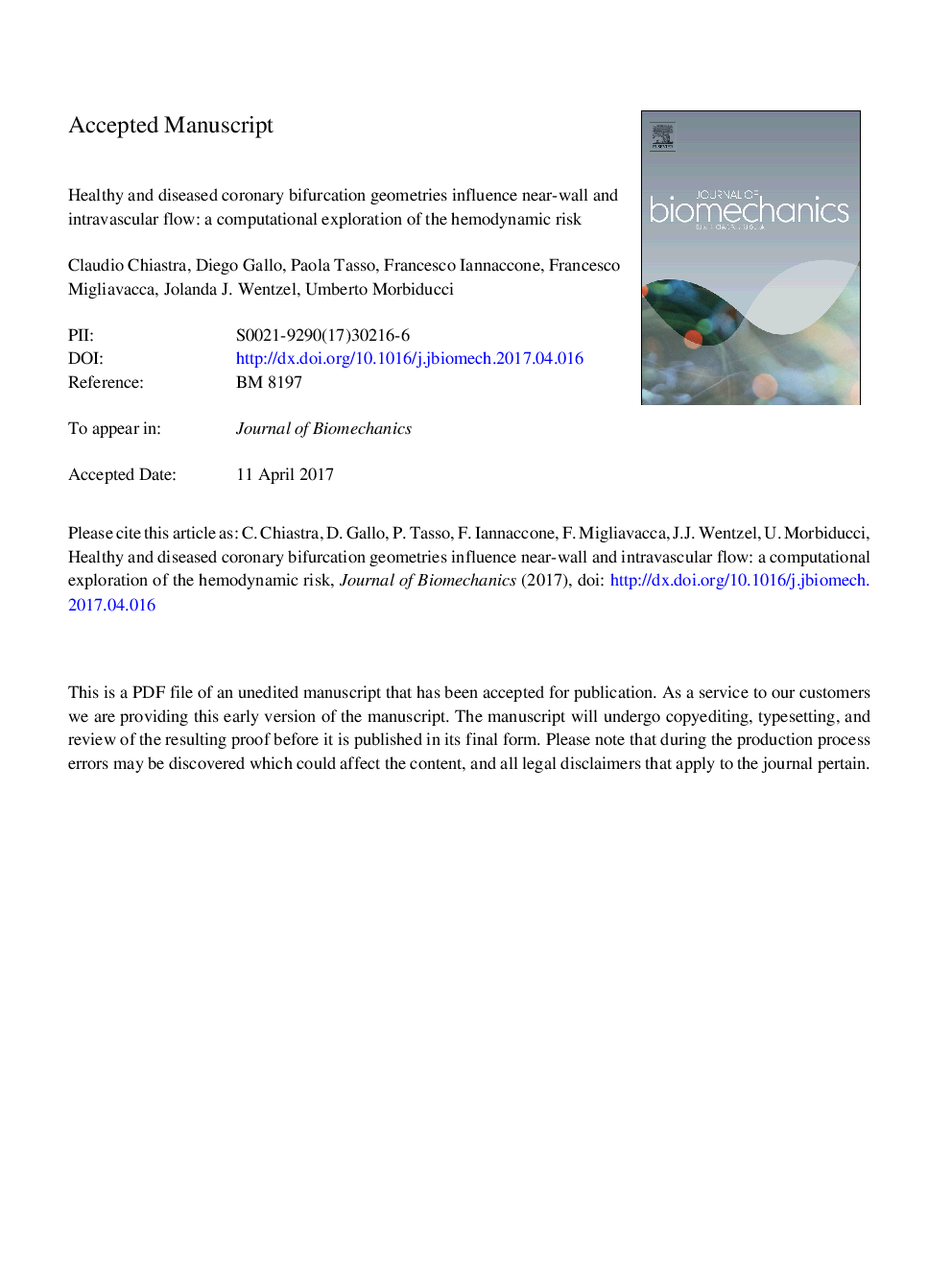| Article ID | Journal | Published Year | Pages | File Type |
|---|---|---|---|---|
| 5032023 | Journal of Biomechanics | 2017 | 36 Pages |
Abstract
Results show that bifurcation angle impacts lowly hemodynamics in both stenosed and unstenosed cases. Instead, curvature radius influences the generation and transport of helical flow structures, with smaller cardiac curvature radius associated to higher helicity intensity. Stenosed bifurcation models exhibit helicity intensity values one order of magnitude higher than the corresponding unstenosed cases. Cardiac curvature radius moderately affects near-wall hemodynamics of the stenosed cases, with smaller curvature radius leading to higher exposure to low shear stress and lower exposure to oscillatory shear stress. In conclusion, the proposed controlled benchmark allows investigating the effect of various geometrical features on local hemodynamics at the LAD/diagonal bifurcation, highlighting that cardiac curvature influences near wall and intravascular hemodynamics, while bifurcation angle has a minor effect.
Keywords
Related Topics
Physical Sciences and Engineering
Engineering
Biomedical Engineering
Authors
Claudio Chiastra, Diego Gallo, Paola Tasso, Francesco Iannaccone, Francesco Migliavacca, Jolanda J. Wentzel, Umberto Morbiducci,
